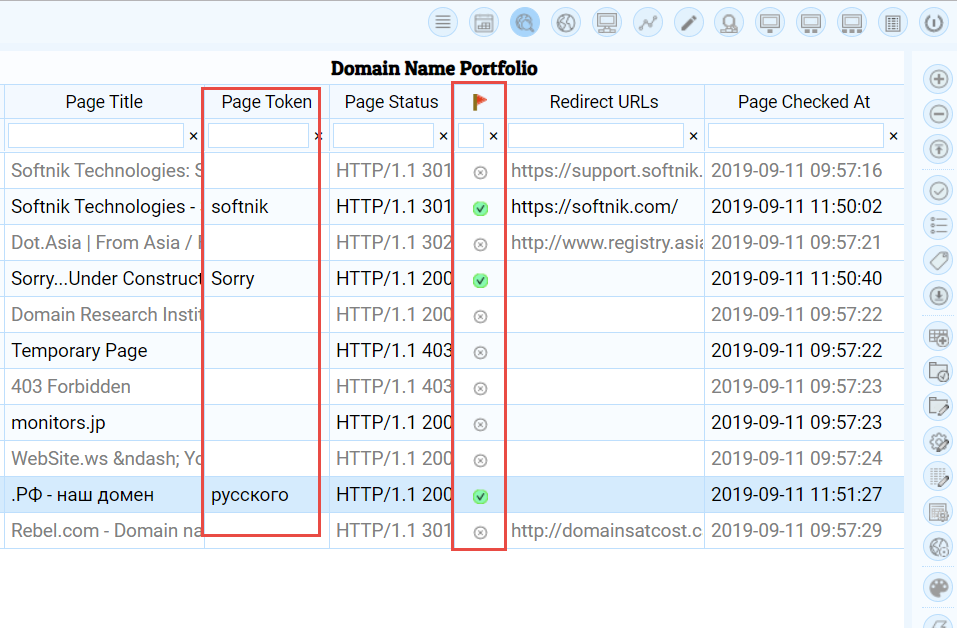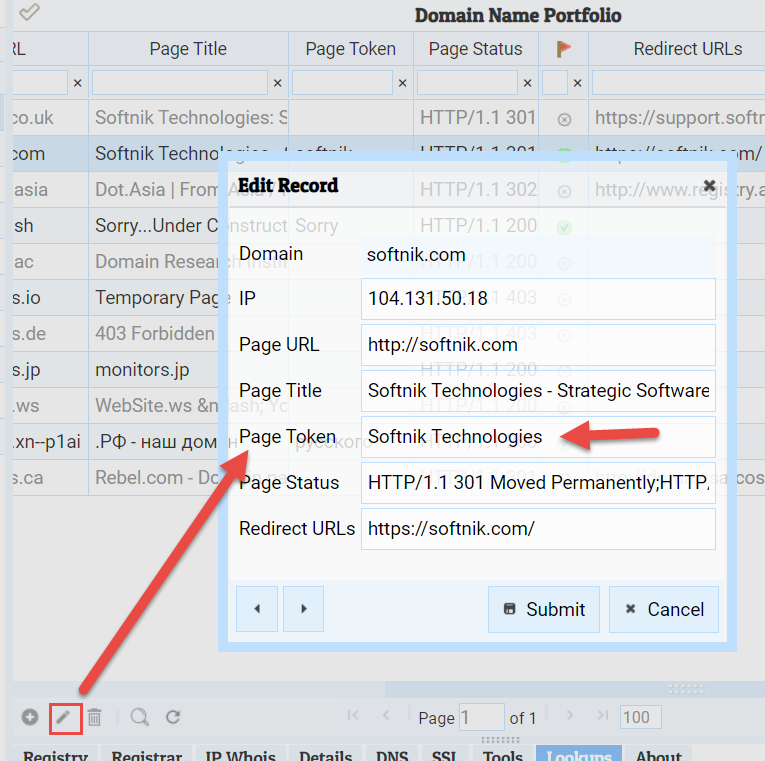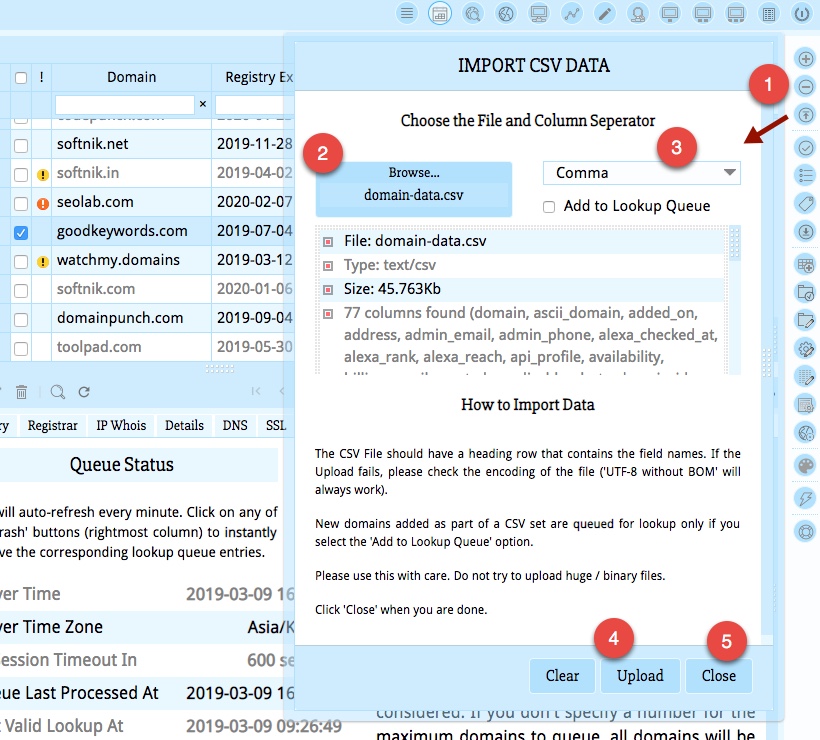How to monitor the domain's website home page for string tokens
Home Page Tokens
Watch My Domains SED has a column / field called home page token that
allows you to specify a unique text string. If you enter a string into this column for any domain,
the application will check to see if it is present in HTML of the domain's home page.
If the string is found in the HTML, it will set the value of another column called page token found.
If you enable the display of the page token found in the domain table, it will appear as a checkmark icon if it is set.

Checking any Specified Page instead of Home Page
You can check any specified web page at your domain's website instead of always checking the homepage. To do this specify the page location as part of the home page token in the following format.
pagepath;;;;tokentext
For example, if you specify /kb/resetall.php;;;;registry editor as the home page token
the software will search for registry editor in domain.tld/kb/resetall.php
Entering the Token Strings
You can specify the home page tokens for each domain in two ways. Using a CSV file upload or
by manually typing it in for each domain.
Manually Entering the Token Strings
First use the 'App Settings' option to enable the display of both home page token and
page token found columns. Use the manual edit button to specify the string token.
Then do a home page check for the domain.

CSV File Upload
You can upload the string tokens in bulk using a CSV file. Create a UTF encoded (without BOM) text file with the first row containing the column headers and the rest of the rows containg the data. For example,
domain,home_page_token softnik.com,Strategic domainpunch.com,Watch My Domains
Then use the 'CSV upload' button to upload the data.

